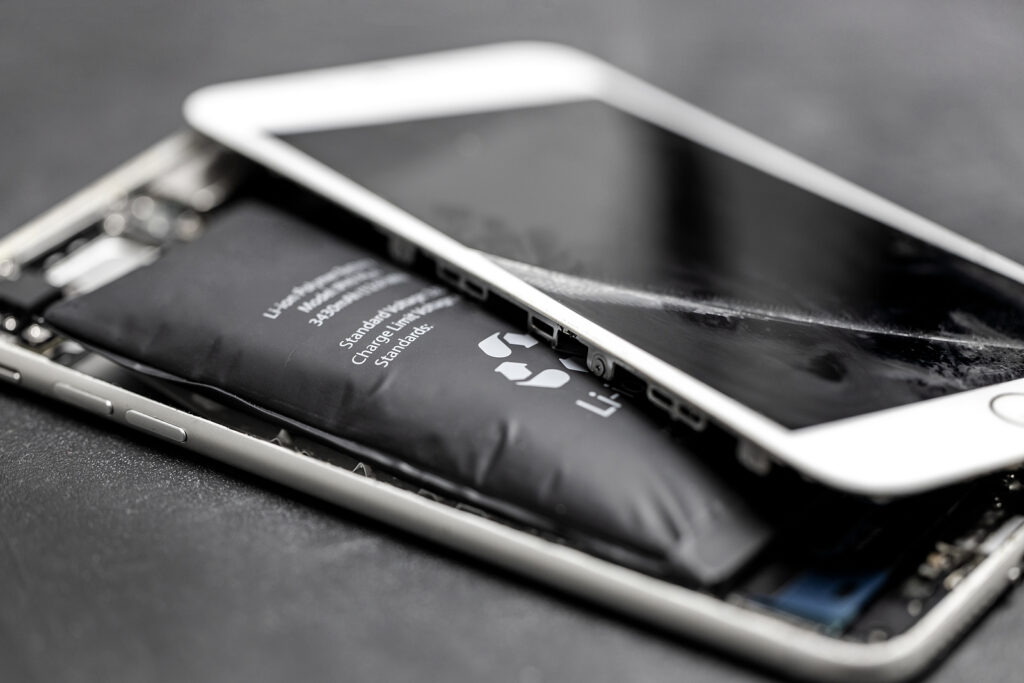When we think of new portable technology, it’s almost always powered by a lithium battery pack. But these high-tech and high-capacity batteries come with some potential hazards, especially at home. You may have seen pictures of swelling phone cases or read in the news about fires started by lithium batteries, but do you know what causes these incidents? Learn more about the common hazards with these batteries, when it’s time for lithium battery disposal, and where you can dispose of them.
Lithium Battery Hazard: Swelling Battery
Whether you’re seeing a small bump on your battery or your phone case has split open due to a ballooning lithium-ion cell, it can be a scary thing to see. What causes lithium batteries to swell? The formation of gas when recharging, also known as outgassing. Causes can include manufacturing defects, charger issues, and overheating, but once it happens, you need to discontinue use immediately. Battery cases are usually made of sturdy stuff, so you don’t need to worry about venting, and you should definitely not puncture the battery: these gases are both toxic and flammable.
Lithium Battery Hazard: Battery Fire
Related to swollen batteries are lithium battery fires, if much more immediately dangerous. Lithium batteries can overheat due to many causes (such as those mentioned above), and when they do, instead of outgassing, they can also experience a “thermal runaway” chemical reaction. This produces intense heat and can start fires—fires that are very hard to put out by traditional means. Water is not only not effective in putting out lithium fires—it can also cause them in the first place. Sudden shock or damage can also cause thermal runaway.
Can You Dispose of Lithium Batteries in the Trash?
Since lithium is reactive with water and can thermally runaway due to damage, lithium batteries cannot be disposed of in the trash. Instead, they must be taken to specialized facilities or events sponsored by your local Board of Health. This isn’t true of all: some batteries can be disposed of at home, but the risk of fire means lithium batteries will not be handled by waste management. It’s the same reason many forms of electronic waste can’t be disposed of at home, such as CRT monitors and TVs.
Navigating which batteries can be disposed of where and finding the right facilities can be tricky. That’s why at NEDT, we simplify hazardous battery disposal with our one-stop Collection Centers, providing quick and safe service for all your needs, including a pickup service! We also take all other sorts of eWaste, hazardous chemicals, and more: see what we accept. Contact us or give us a call, and plan your trip today!



Leave a Reply